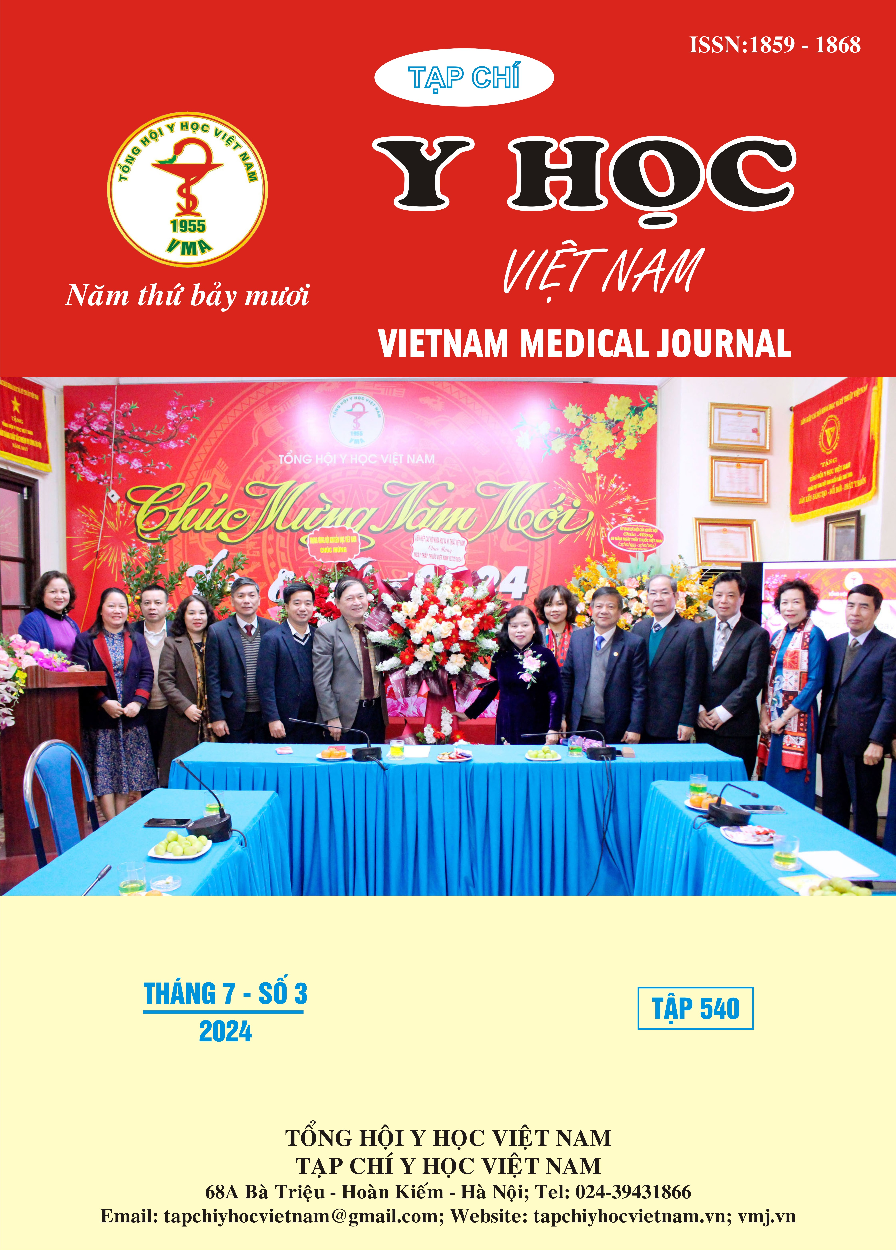RESULTS OF TREATMENT OF UNRESECABLE PANCREATIC CANCER BY GEMCITABINE-TS1 REGIMEN
Main Article Content
Abstract
Background: The Gemcitabine –TS1 combination regimen has many advantages for inoperable pancreatic cancer. In Vietnam, there is little information about the treatment results of this regimen. Purpose: Evaluation of results of treatment for unresectable pancreatic cancer with Gemcitabine - TS1 regimen. Subjects, research methods: Prospective study, cross-sectional description, longitudinal follow-up in 26 patients with inoperable pancreatic cancer which was treated with Gemcitabine - TS1 regimen at Central Hospital 108. Results: The mean age of patients at the time of diagnosis of inoperable pancreatic cancer was 65.3 years. The most common clinical symptom is abdominal pain accounting for 96.2%, jaundice as well as weight loss are 30.8%. The most common primary tumor site is the head of the pancreas, accounting for 65.4%. The most common site of metastasis is the liver, accounting for 53.8%. There were 92.3% of patients with CA19-9 elevation at the time of diagnosis and 50% of the sample patients had CA19-9 levels above 1200 UI/ml. No patient achieved a complete or partial response during the course of treatment, and the partial response and disease rates remained unchanged at 14.5% and 73.1%, respectively. Median progression-free survival and median overall survival were 5.3 months and 6.7 months respectively. The most common adverse effect was agranulocytosis and the rate of grade 3-4 agranulocytosis accounted for 19.2%. Conclusion: Gemcitabine–TS1 is a mainstay treatment for patients with unresectable pancreatic cancer.
Article Details
Keywords
Gemcitabine; TS1; pancreatic cancer
References
2. Nakai, Y., et al. "A multicentre randomised phase II trial of gemcitabine alone vs gemcitabine and S-1 combination therapy in advanced pancreatic cancer: GEMSAP study." British journal of cancer 106.12 (2012): 1934-1939
3. Pancreas - Global Cancer Observatory. https://gco.iarc.fr/today/data/factsheets /cancers/13-Pancreas-fact-sheet.pdf
4. Ruarus, Alette, et al. "Locally advanced pancreatic cancer: a review of local ablative therapies." Cancers 10.1 (2018): 16
5. Salgado, M., et al. "Management of unresectable, locally advanced pancreatic adenocarcinoma." Clinical and Translational Oncology 20 (2018): 113-118.
6. Siegel, R.L.; Miller, K.D.; Jemal, A. Cancer Statistics, 2017. CA Cancer J. Clin. 2017, 67, 7–30.
7. Siegel, Rebecca, et al. "Cancer statistics, 2014." CA: a cancer journal for clinicians 64.1 (2014): 9-29.
8. Ueno, Hideki, et al. "Randomized phase III study of gemcitabine plus S-1, S-1 alone, or gemcitabine alone in patients with locally advanced and metastatic pancreatic cancer in Japan and Taiwan: GEST study." Journal of Clinical Oncology 31.13 (2013): 1640-1648.


